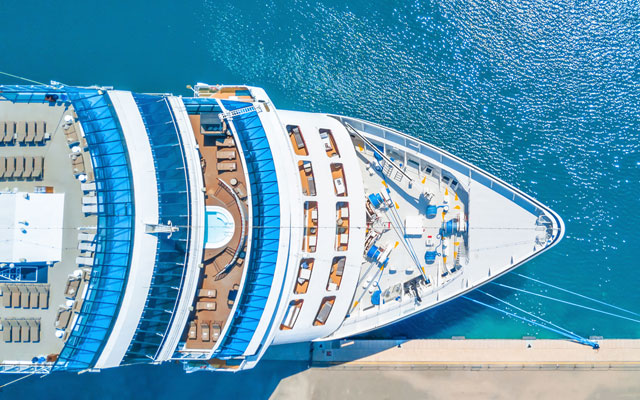Fingers have often been pointed at the cruise sector for its massive air and marine pollution as it experienced enormous growth in popularity, ship capacity and destinations visited, but industry leaders maintain that cruise lines are pumping much financial and technological efforts into environmental stewardship.
“Most of our cruise line partners have their own sustainability efforts, and cruise lines have invested more than US$22 billion in new ships that use more environmentally friendly technology and cleaner fuel,” said Jiali Wong, regional manager – Asia, Cruise Lines International Association (CLIA), at the Asian MICE Cruise Conference last month.

She stated that more cruise companies are channelling investments into extensive efforts such as advanced waste management and treatment, banning single-use plastics, recycling and reusing waste, training among crew and using LNG fuel – the cleanest option with lower emissions.
On its part, CLIA has also signed an MoU with Dubrovnik to protect the cultural heritage of the Croatian city. Both partners are now coming up with a framework on behalf of the cruise industry for destination partners.
“This is not something the cruise industry can do single-handedly. We must work together hand in hand, and the cruise companies are always willing to work with partners,” expressed Wong.
Royal Caribbean Cruises, for instance, implemented the Save the Waves programme 30 years ago, “before sustainability became a hot topic”, stated Angie Stephen, managing director – Asia Pacific. In 2016, she added, the company had pledged to reduce carbon emissions by 30 per cent by 2020, but the goal was achieved ahead of target this year.
Cruise lines have also been proactive in working with local governments and communities to introduce and uphold sustainability efforts in destinations around the world. For example, Royal Caribbean is now aiming to have more sustainable tours and has begun its first project in the Bahamas, where the company is helping to invest and sustain local infrastructure by partnering with hotels, airlines and governments in the Caribbean.
Stephen shared: “We got tired of waiting for destinations to think about how to develop sustainable experiences, so we decided to take it upon ourselves. We’re doing this for all stakeholders like hotels, airlines and local governments. In the future, we have to be smarter about the destinations (we choose to sail to).”
Although cruise companies publish annual sustainability reports on their websites and CLIA has detailed industry reports online, their efforts are not common knowledge because the companies “do not shout about it”, Stephen explained.
“We’re in the business to sell holidays, and it’s not very fun or exciting to talk about recycling waste and steam. These things are not perceived to be as fun as entertainment or bumper cars. But you’d be amazed at what is done. Seventy-five per cent of waste never reaches land, and nothing is released into the ocean, ever.
“We still have long way to go; it’s a journey of continuous improvement and letting the communities know we are focused on it,” Stephen elaborated.





















